In celebration of disco’s 55th year, Elio Iannacci spoke with seven legendary divas who survived, shone, and soundtracked our liberation…
By Elio Iannacci
Before Studio 54 was name-dropped into cliché – and long before Saturday Night Fever and the geeky Bee Gees swooped in to sanitize its sound – the disco movement was firing up a prophecy. A prophecy lit by the force of Black women and the fire of the gay underground. Laced with strings, tambourines, soulful vocals and lusty electro compositions, this music genre was piloted by a mix of Black, Italian, Latino, queer and feminist forces who played a vital part in turning rhythm into resistance.
This year marks the 55th anniversary of that syncopated revolution, a genre many music historians trace back to Italian American DJ David Mancuso’s first queer-packed Love Saves the Day Loft party in New York City in 1970. The party started on Valentine’s Day of that year but went on for decades (Mancuso passed away in 2016). It was at The Loft that other fledgling gay dance floor innovators – Larry Levan of the Paradise Garage, Frankie Knuckles of Chicago’s Warehouse, Francis Grasso of The Sanctuary and Studio 54’s Nicky Siano – each heard Mancuso blend funk, soul and rock in an effort to mirror the all-races, all-sexualities credo of his eclectic crowd. While Mancuso didn’t invent disco’s sound—which came from Black and queer cultures criss-crossing with global style, he made space for its evolution.
While all of these queer disco acolytes devoted themselves to expanding the groove, it was a select set of daring Black women who fronted the genre and transformed ’70s nightlife and fashion in a way that carried through to the ’80s, ’90s, 2000s and beyond. Together, their united vision of music – that intersection of queer and diva – inspired disco’s succession: house, circuit, trance, electronica, and legions of Billboard-topping dance-pop.
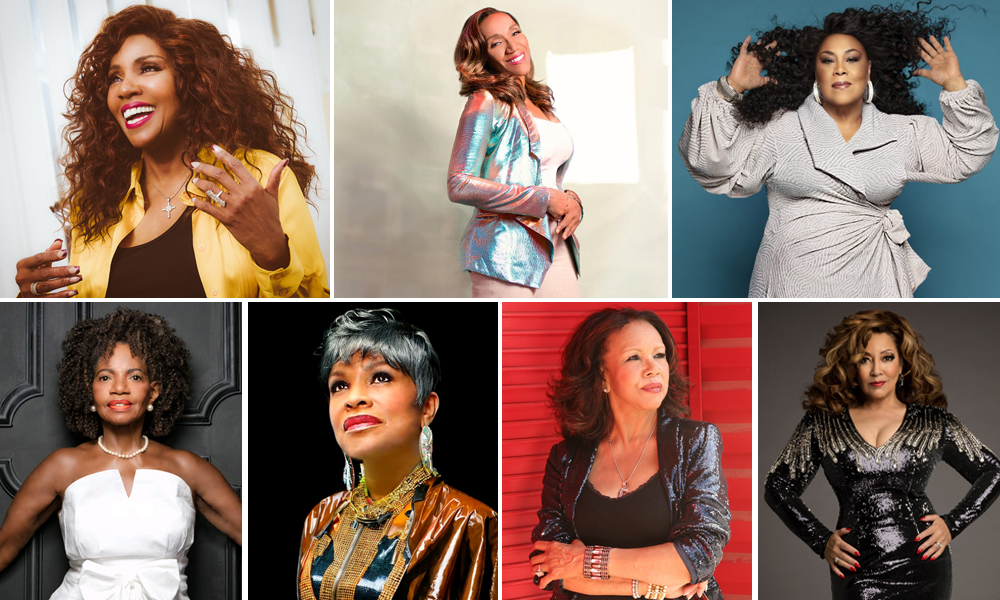
Among the disco queens who made a glittering – yet permanent – mark on 2SLGBTQI+ and pop culture are Gloria Gaynor, Martha Wash, Norma Jean Wright, Melba Moore, Candi Staton, Kathy Sledge and Linda Clifford. They stand as genre-defining hitmakers whose alliances with LGBTQ+ artists helped turn the dance floor into a space of truth and euphoria. Their anthems – and the songs that came after them – blasted an era of change even further, by celebrating queer liberation (“I Am What I Am”), unapologetic female sexuality (“It’s Raining Men”), acts of resistance connected to civil and women’s rights (“Young Hearts Run Free”) and, of course, the chosen-family dynamics of the LGBTQ+ movement (“We Are Family”). Their legacies go well beyond disco’s heyday, yet each of their journeys is anchored to a soundtrack of survival, revolution and freedom. It hasn’t always been smooth sailing between disco queens and queers. Gloria Gaynor was recently chosen to be awarded by Donald Trump at the Kennedy Honors in December. The View’s Ana Navarro voiced what many fans felt when she posted on Instagram urging Gaynor not to “accept an award from the hands of a man who has attacked the rights and history of women, people of color and LGBTQ.” Navarro stressed that it was “the gay community in particular [that] helped turn her signature song into an anthem.” As of press time, there are also unconfirmed reports that Gaynor made donations to multiple Republican party members.
Yet beyond these complicated ties, each of the seven artists defy critics who once dismissed disco as too Black, too loud, too queer. Their songs aren’t just feel-good – they are, as Sylvester famously sang, cuts that make us feel mighty real. A.k.a. worthy. Accepted. Beloved. Desired. Strong. Over the course of three years, I connected with these seven voices of change to collect and share their testimonies.
GLORIA GAYNOR: THE MIRRORBALL MONARCH
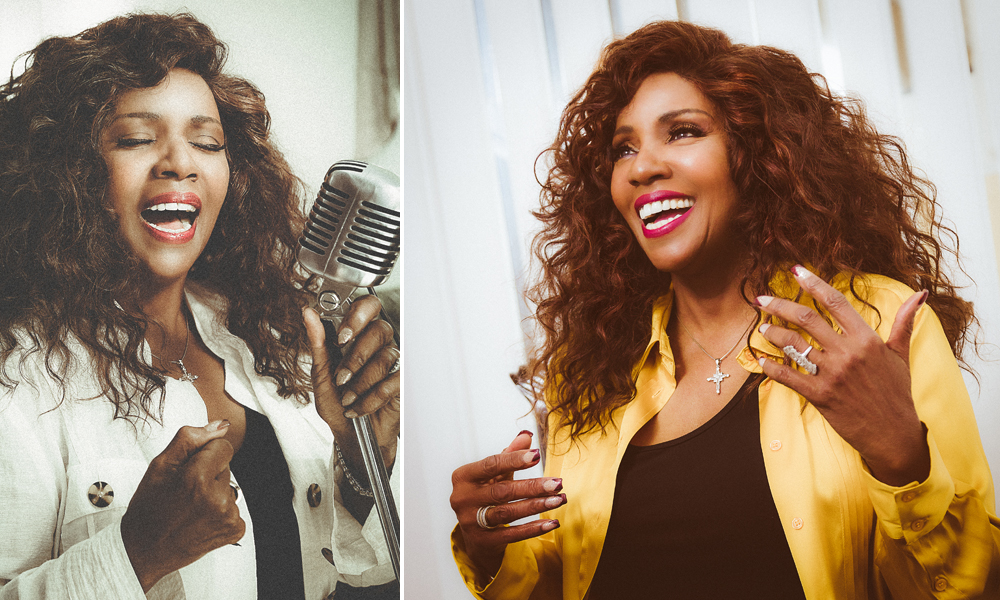
Tied only with Donna Summer for the crown, Gloria Gaynor stands as the Queen of Disco – and one of the genre’s most enduring living legends. Now 82, she’s alive, well, and still singing her heart out without selling out. Her two biggest swings – 1978’s “I Will Survive” and 1983’s “I Am What I Am” – remain jumbotron-sized anthems, projecting pride and resilience in bold type. Decades later, neither sounds maudlin or dated. In Gaynor’s own words, disco was her anchor and her calling – and she’s come to see that its power hasn’t dimmed with time.
On why disco will always be on a comeback tour
“It’s recession-proof. Disco comes along when both the economy and spirits are low. It has that power to resist because it’s positive and upbeat. It celebrates the tenacity of the human spirit, and disco is the only genre in history to bring together people from every race, creed, colour, nationality and age group.”
On respecting the O.G. divas
“I’ve always acknowledged the people that came before me. I’ve learned from them – people like Nancy Wilson were the building blocks to my craft. I tip my hat to Beyoncé because many young people really don’t actually believe they have gained anything from their predecessors and they don’t name names. She does. So does Kylie Minogue [whom Gaynor duetted with on “Can’t Stop Writing Songs About You”]. They give audiences what they want by using the greatness of the past so she’s able to uplift the present.”
On not feeling Studio 54’s vibe
“It wasn’t my scene. If I had a gig there, I’d enter, head to the dressing room, go onstage and head out the back door. I was not hanging out with Michael Jackson, Diana Ross or Andy Warhol. One night I had friends visiting from the UK who wanted to experience Studio 54. My limo stopped in front of the club, and the doorman at the velvet rope – I called him the casting director – came over to the car and signalled for me to let down the window, and he said, ‘Ms. Gaynor, you don’t want to come in here tonight.’ We left. I was not about to find out what was going on.”
On disco as the ultimate equalizer
“Disco allowed me to take the lead completely. I chose my subject matter. I chose my songs. There are so many female disco artists, and for critics to say that we were all under some man’s thumb or were someone’s puppet is wrong. ‘I Will Survive’ was only a B-side. I was the one who pushed for it to be a single. To me, disco will always be a genre where women are leaders. I’m living proof.
That said, as an artist, you can’t do everything. I also choose qualified people like Tom Moulton [the legendary gay producer credited for pioneering the 12-inch mix] to work with. My first album [1975’s “Never Can Say Goodbye”] was mixed by him. He knew the sound of the gay discos and knew what gay crowds wanted: more, more, more. He saw the future, and we made my album one big continuous mix for 19 minutes. That had never been done before back then. Now, everyone does it, but we were the first.
I have people I work with, family, fans and friends who are of the LGBTQ+ community – they have no misconception of how I love them and have loved them from the start.”
KATHY SLEDGE: THE BOLD SOUL SISTER

Kathy Sledge’s dance music legacy is anchored in two families: her bloodline – she led Sister Sledge’s all-sibling, hit-making crew – and her chosen LGBTQ+ kin of collaborators and fans. Her voice extends like stretch velvet – supple and shape-shifting – fuelling classic tracks such as “We Are Family” and “He’s The Greatest Dancer,” alongside solo songs like “Another Star,” “Freedom” (Frankie Knuckles remix) and “Falling Deep In Love Again” (with Horse Meat Disco). As Sledge tells it, disco didn’t just lift her up: it recalibrated her autonomy and pushed her artistry further.
On disco’s telenovela-like rise and revival
“In the ’70s, disco music became a threat to the music industry. It was becoming much too powerful, much too fast – blending different genres of music as well as different cultures. That scares people who are limited, but disco music couldn’t be controlled. It crossed all boundaries. Even when the infamous Disco Demolition happened [an event in 1979 where disco records were set on fire in Chicago’s Comiskey Park as part of a backlash steeped in racism and homophobia], people unsuccessfully tried to kill disco music. But it only resurfaced as house, pop and other branches of dance music – it never went away. In the end, the cream rises to the top.”
On removing roadblocks
“They did throw a lot of albums in a field and burned them and screamed ‘Disco sucks,’ but I never felt threatened as an artist. Disco and dance music are one of the many facets of who I am as an artist. A few years after I recorded ‘Rising’ [for King Britt’s Sylk 130 project in 2016], I was being heavily sued by my own sisters. Legally they voted me out as a manager of our company LLC, where I was not allowed to say I was ‘from or of Sister Sledge.’ That was an extremely cathartic and heavy time for me. I was made to feel like I didn’t even own my own voice.”
On reinvention and redirection
“Now, my sister Kim and I restructured our company LLC, and own and protect our brand.
I went through hell protecting my rights and the value of who I am. It’s been a long but invaluable road. However, even then, I did not think my career was over. It only made me stronger and more passionately and creatively driven.”
On reclaiming sisterhood
Through it all, I will always be most proud that my sisters and I opened the doors for acts like Spice Girls and En Vogues and the TLCs. I am presently touring my production Kathy Sledge presents Sister Sledge Live. It’s doing incredibly well, especially with the resurgence of ‘Thinking Of You’ [which is getting a Kathy’s-version re-release]. This year I also debuted my new song, ‘Promise Me,’ available on all music platforms.”
MARTHA WASH: THE DANCE FLOOR DEFENDER
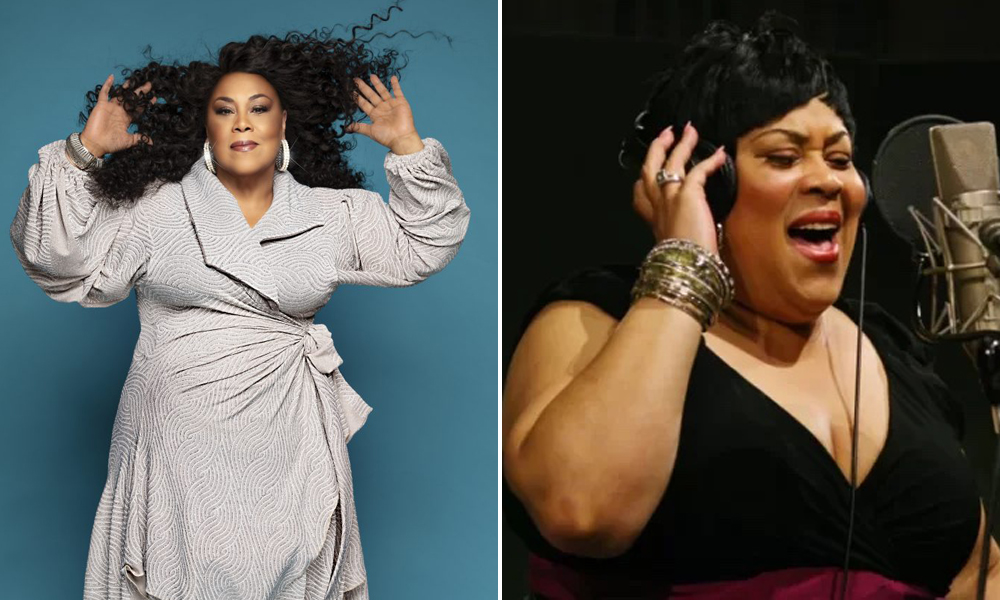
No other vocalist has consistently brought the church to the club like Martha Wash. From her early days backing queer music icon Sylvester to her evolution from Two Tons of Fun to The Weather Girls (with Izora Armstead, her partner on “It’s Raining Men,” arguably the gayest anthem ever to chart), Wash’s reign over the dance floor was born in a disco.
Across decades, she’s fought for and earned her dues – most notably in the ’90s, when she won landmark court cases demanding credit and compensation for her unmistakable lead vocals on massive tracks like C+C Music Factory’s “Gonna Make You Sweat (Everybody Dance Now),” Seduction’s “(You’re My One and Only) True Love” and Black Box’s “Strike It Up.” Her gospel-rooted, five-octave range ignited solo deep cuts like “Carry On” and “Catch the Light,” as well as her duet with Jocelyn Brown, “Keep on Jumpin’.” Wash also helped create new disco spaces by launching the First Ladies of Disco tours, spotlighting powerhouse vocalists of the era and bringing the genre to live stages. Here, she emphasizes that the essence of her career goes beyond lending her voice: it’s about persistently recovering her legacy.
On her disco epiphany
“Disco gave my voice a real platform to grow. It was the first time I could be loud, proud and heard. That music saved people, and I saw that. It created joy where there was pain, especially in the gay clubs. That’s where our songs were really born. Not on radio. Not on TV. On dance floors. Those clubs – especially gay clubs – were our sanctuary. That’s where we were welcomed, celebrated, free.”
On that reigning anthem
“‘It’s Raining Men’ was massive for us, because that song was claimed by the LGBTQ+ community the second the needle dropped. Paul Jabara [the track’s co-songwriter, who passed away of HIV/AIDS complications in 1992] took it straight to the gay clubs first. No label, no rollout, no branding, no red carpets. Just speakers and a dance floor and folks who understood it right away. I saw that crowd screaming, jumping, like they finally had their day. And they did.”
On Sylvester’s bold blueprint
“Sylvester was the reason I got into this business. We were his backup singers. Watching him live his life so boldly and unapologetically – it gave me strength. He was out when most people couldn’t be. He wore heels and sequins and didn’t flinch or care what anybody said. He taught me to bring the drama – to command a stage. Sylvester was fearless – Black, gay, gender-fluid and things that we are just now trying to find words for. Being around him taught me to be bolder. He told me, ‘Don’t let anyone tell you who you are. You tell them.’ That stuck with me.”
On owning your own mic
“When I think about feminism, it’s about women owning their work, their bodies, their voice. It’s about being in control of your narrative. Too often in this industry, women – especially Black women – get silenced or sidelined. I refused to let that happen to me without a fight. I tell young artists, especially young women and LGBTQ+ artists: know your worth. Protect your voice. Don’t let anyone else define your image or your sound. I saw how they tried with The Weather Girls and Sylvester, but I had to push back hard to be seen and to be heard properly. Respectfully. But that’s what emancipation is: claiming yourself.”
MELBA MOORE: THE MOVEMENT MAKER
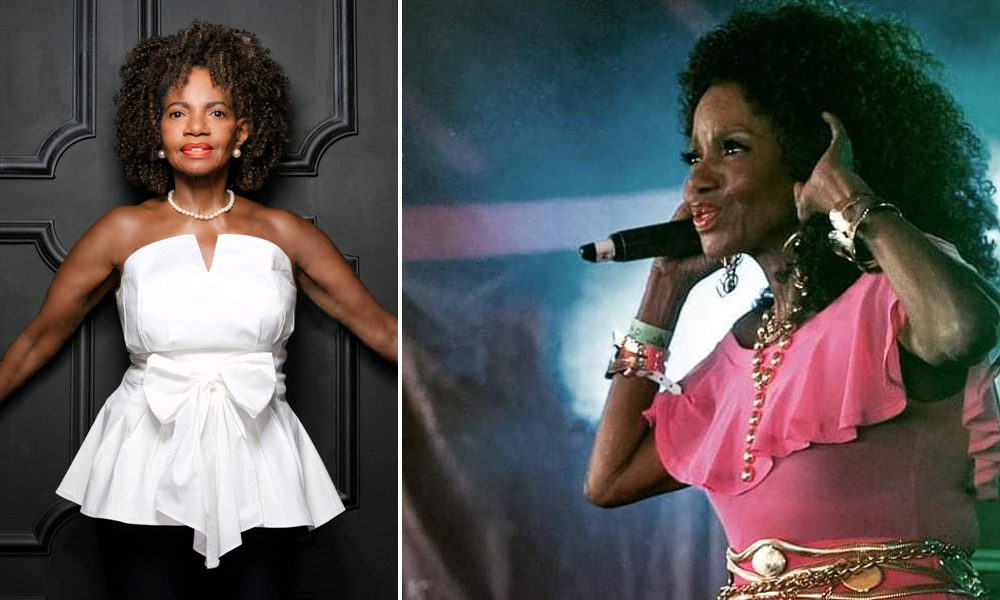
Before becoming Oprah’s favorite diva, a Tony-winning Broadway star and a talk-show host, Melba Moore was a disco powerhouse whose hits like “You Stepped Into My Life” and “Love’s Comin’ at Ya” set dance floors ablaze in the ’70s and ’80s. Her music was a lighthouse for many, providing a pathway for Black and LGBTQ+ communities craving freedom from oppression and convention. Breaking barriers as a Black woman in music, Moore fused Broadway brilliance with disco flair in a way that spoke to lovers of drama and good times alike. She went on to create a myriad of music throughout 19 studio albums. Today, daily TikTok tributes to her throaty, superhero vocal stamina – holding notes for more than 36 seconds – rival beauty influencer content, cementing her status as a next-gen icon. Here, her frank career reflections channel the vibe of her latest single, “No Filter.”
On disco as sanctuary
“Back in the day, disco wasn’t taken seriously; it was dismissed. But that was because it was a safe space for those who loved it. People who weren’t the usual suspects, you know? That music created community, especially for people who didn’t feel accepted anywhere else. When I would perform in clubs or on the road, I’d see so many LGBTQ+ folks coming together, dancing, celebrating. There was no judgment. That meant something.”
On feminism on and off stage
“Women in music didn’t have much say when I began. We were told what to wear, what to sing, how to behave. I had to fight for every inch. And if you were a Black woman? Even harder. I knew I had to prove that I could sing anything – Broadway, R&B, soul – and still be taken seriously. I saw what happened when women tried to lead the conversation and call the shots on their own art. People called them difficult, or said they had attitude. But if a man did the same thing, it was leadership. I realized we had to demand respect, not just wait for it. Disco let so many soul singers [become] pop singers, so with that, we slowly started to have influence on our own careers.”
On unleashing and ascending
“Music was my liberation. It gave me a place to express my truth, to connect with people who felt silenced. And when I look back at the songs, I see a thread of empowerment. ‘You Stepped Into My Life’ and ‘Love’s Comin’ at Ya’ – those weren’t just love songs. They were declarations of survival. The LGBTQ fans always understood that. They read between the lines. They saw freedom in this music, and they made it their own. I never had to ask for their support – they just gave it. And I don’t take that lightly. The gay community had and still has a particular role in supporting and really helping vocalists become divas. We still have a lot to learn from each other.”
On singing for the silenced
“We have to remind each other that disco stems from joy, and joy is resistance in this day and age. That love – however you define it – is worth celebrating. So when I sing, I’m not just performing. I’m remembering all the people who couldn’t be out, who didn’t have a voice, who couldn’t say what needs to be said. I’m singing for them too.”
NORMA JEAN WRIGHT: THE BEAT KEEPER
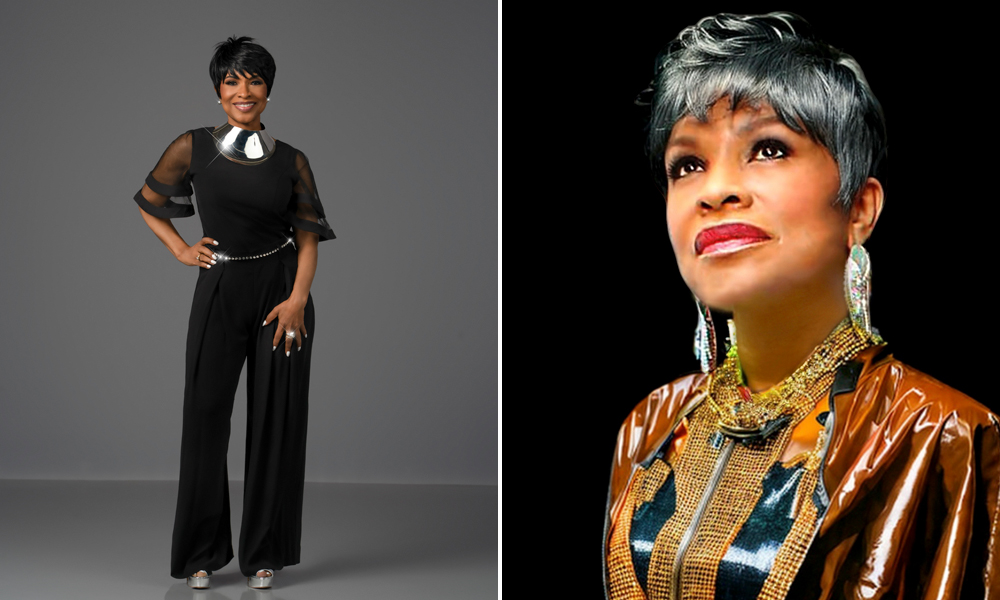
Much like Destiny’s Child and The Supremes, disco collective Chic – led by Bernard Edwards and Nile Rodgers – weathered several personnel changes. But their debut album broke through with Norma Jean Wright, a voice that reset the era’s mood with textured yet sumptuous tones. Draped in vocals smoother than satin, Wright seduced the airwaves with “Dance, Dance, Dance (Yowsah, Yowsah, Yowsah)” and “Everybody Dance,” pushing Chic into Billboard’s heights. Her self-named solo album kept her choruses burning in gay clubs around the globe with songs like “Sorcerer,” “Saturday,” “Having a Party” and the ultra-bourgie boogie of “High Society.” Fresh off dropping remixes of her song “Tear Down These Walls,” by sound sculptors Alex Di Ciò and Berttheproducer, Wright dives into dance music’s resolve to break down barriers.
On disco as the ultimate influencer
“People need to be inspired. We can’t allow what’s happening in the world to keep us in despair. Living and loving life – that’s my ministry. Being around during disco, in those clubs, when people came together – gay, straight, Black, white – dancing in communion, that was powerful. I think we need to do that again.”
On music making the invisible, visible
“Disco gave us the platform. It let gay men and Black females be seen as viable artists – Donna, Gloria, Claudia and so many more. I doubt if disco hadn’t happened, we’d have been embraced the way we were. Chic’s rise opened doors for all of us. Disco was what cracked it open for me.”
On healing through harmonies
“I didn’t realize the impact of our music in gay clubs until people shared their stories. When someone tells you the music saved their life, that the club gave them space to be themselves, it hits deep. That’s why a song like ‘Be Gone’ resonates. I meant every word. It’s honest. In some ways, I think Black women and gay men know and feel this a lot: what doesn’t kill you doesn’t make you stronger. Sometimes when something’s over, it’s just over—just go and get away from the negative energy or any harm.”
On choruses as battle cries
“This music, it’s a space for everybody who’s been pushed aside: queer people, women, anyone who’s been told they don’t fit. The dance floor has always been our church, our sanctuary. It’s where we can be free, loud and unapologetic. I want people to feel that power, to feel they belong. This isn’t just disco or dance music. It’s rebellion wrapped in rhythm. It’s a call to keep fighting, keep loving, keep showing up for each other.
When I’m performing, I’m thinking about all the people still struggling – and that keeps me going. This is our movement. Songs like ‘Around Me’ or ‘This World’ – they still hold up. They are about surviving. And it’s real. I’ve lost so many friends, musical artists, stylists and creators to AIDS. Some didn’t even tell us because they felt they wouldn’t be accepted. We had to keep going, but it hurt. Music made it hurt less.”
CANDI STATON: THE HIT DISTURBER
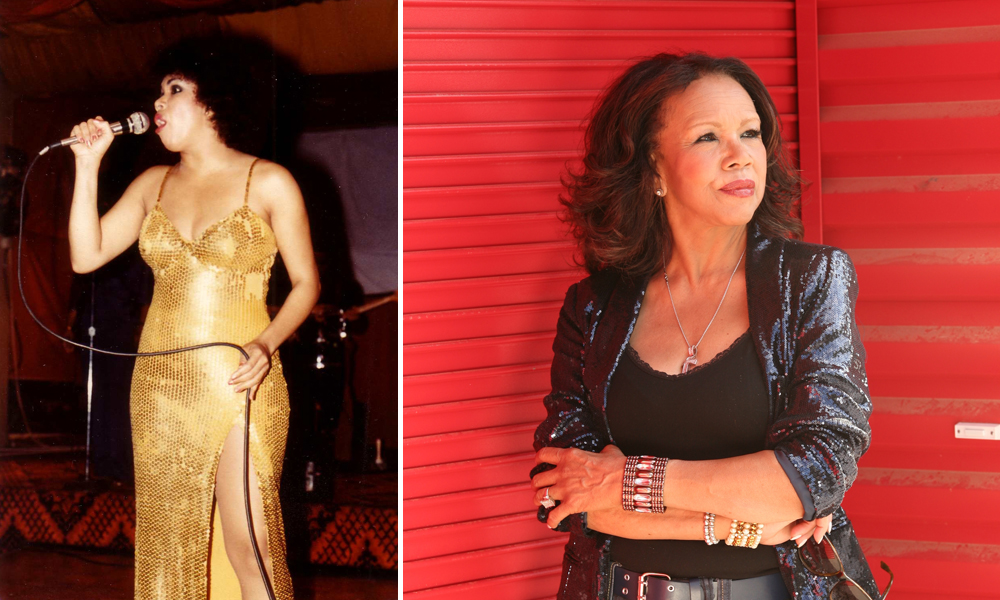
Candi Staton has been a constant on queer playlists since striking gold in 1976 with “Young Hearts Run Free.” By then, she had already released four soul albums and spent years on the road, dealing with racism, industry gatekeeping and telenovela-amounts of personal trauma. Though Staton’s main hit has a bleak backstory – mirroring her experience with an abusive husband – its lyrics, paired with Staton’s tough-yet-tender delivery, hit hard with those carving out identity amid the ’70s sea change of civil, women’s and LGBTQ+ rights.
Her voice – raw, radiant, and full of contradiction – drew queer ears to deep cuts like “Nights on Broadway” and the piercing ache of “Victim.” She later staged a dance floor comeback with “You Got The Love” (famously spliced over Frankie Knuckles’ “Your Love,” a track that charted for four decades, and again this year with Pete Tong).
Disco, she says, is still something she sees as a rescue mission – even as a new gospel-inspired album, Back To My Roots, and an upcoming Groove Armada EP collab take flight.
On the “Young Hearts” origin story
“‘Young Hearts Run Free’ brings joy even though I’m singing a very sad song. Songwriter David Crawford wrote it about my life; God rest his soul. I was going through a painful marriage with a dangerous man, and after [David and I] had many talks about it, he turned my life into a song. I was trying to get away from this man, and he told me he would kill me if I ever mentioned the word divorce. I would’ve been a statistic, but I believe I was saved by disco to teach people that you don’t have to bow down to anyone trying to destroy you. I didn’t know it would connect with so many people in gay clubs, but it did. That song is my story, but it became everybody’s lesson for survival.”
On disco as a life raft
Disco was the greatest thing ever to happen to me – I thought I’d died and gone to heaven. I went from the rough Chitlin’ Circuit to being treated like a queen in big, beautiful gay clubs across the country, where audiences gave me more than money – they gave me confidence. At the Paradise Garage on Halloween, they brought me down from the ceiling and when I landed, the crowd went wild – it made me feel like royalty for three days straight.”
On riding the highs of queer joy
“It was the same every time I played a gay club. They just loved me. There are two songs that they love more than anything: ‘Victim’ and ‘Young Hearts Run Free.’ They embraced me, they paid me, and I didn’t have to worry about food or transport. They took really good care of me.”
On remixing respect
“On my album Back To My Roots, I’m telling people, ‘Remix as many of them as you like, just take them because they belong to me.’ Listen, all these disco and dance mixes gave me freedom and respect in places I never thought I’d be welcome in. I carried that kind of liberation with me everywhere. The clubs, the people, the energy – I never forgot how it felt to be welcomed and adored. Those nights, those crowds, that love – they saved me and let me have the long career I have.”
LINDA CLIFFORD: THE CLUBLAND CRUSADER
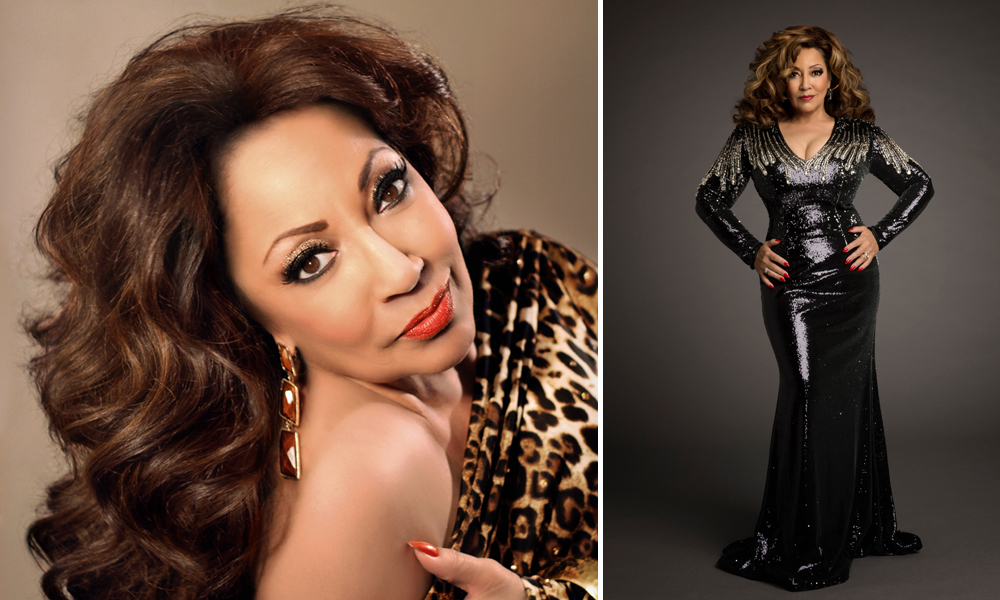
Famous for flipping Sweet Charity’s splashy showstopper, “If My Friends Could See Me Now,” into a dance floor scorcher in the late ’70s, Linda Clifford has left a mark on club and pop culture that deserves serious study. Before that, she danced alongside Shirley MacLaine in the Broadway film adaptation—and even cameo’d in the equally iconic Rosemary’s Baby.
Clifford’s nine-album legacy is as epic as her career trajectory. Her voice – equal parts velvet and fire – slips into spoken-word realness on tracks like 1978’s “Runaway Love” and resurfaces on the recently remixed and rereleased deep house diamond “Ride the Storm.” In the ’80s, she lit up the Fame soundtrack with a track called “Red Light,” teamed with Curtis Mayfield for some uncanny soul (see their duet “Rock You to Your Socks”) and later, in the 2000s, joined forces with gay Chicago house legend Ralphi Rosario for “Changin” – one of the most snatched real-talk handbag house tracks of its time.
Here, Clifford opens up about how disco, house, and a personal history with dance floor players and politics shaped her legacy – and reminds us just how fierce a diva can be.
On dancing from scandal to stardom
“Disco gave me a life I never could have dreamed of. My first big brush with fame was in 1966, entering the Miss New York beauty pageant. I was told I didn’t win, but as I was leaving, a judge ran over and said they had miscounted the vote. Next thing I know, photos are all over the front page of the Daily News claiming scandal – they printed my home address. I was sent to Miss USA, but they never gave me a crown, sash or trophy. What we got was horrible, racist letters – bags of mail threatening to burn our home. We had to move. I hired a bodyguard 24/7.
The horrors continued until I found my way to music, thank God. Disco gave me the chance to travel, to learn, to live with glamour. I’ll never forget being in the DJ booth at Studio 54 when the DJ turned to me, said, ‘Watch this,’ and played three notes of ‘If My Friends Could See Me Now.’ People ran to the dance floor like maniacs. It was insane.”
On her 1,500 fairy godmothers
“I worked this one gay club called The Pub and I ended up staying there for months, like a residency. I was pregnant at the time. When it was time for me to go into the hospital to have the baby, I did. After the birth, I wake up and my room is filled from ceiling to floor with gifts and flowers. A note said, ‘From your 1,500 fairy godmothers’ – it was from all the fans at The Pub. That was the moment I knew my gay fans and I were together for life. I remember just deciding in the hospital bed, ‘Okay, they’re never losing me.’”
On diva devotion
“The LGBTQ+ loved their divas because they needed to know they knew they were loved. Divas represented this mindset for many. It meant determination to keep going when so much was falling apart. I lost my brother to AIDS. I know how that feels to watch somebody you love disappear. I was not going to let the community go through that alone. That’s why I kept making dance music and ended up working with people like Ralphi Rosario on ‘Changin’ – it was like a sisterhood. Whether it’s in the studio or getting remixed, we learned from each other and guided each other with songs like ‘Wanna Give It Up’ and ‘I Hear The Music.’ It’s all there in the recordings we make or that get remixed – that long-lasting love is forever.”
On disco’s nonstop after-party
“People have been saying disco’s dead for years – but it never died. The Disco Demolition tried to cut it down, and that was a flop and so stupid. Now we know that was rooted in racism and homophobia. When people were dancing together – any race, ethnicity, gender – and there are always those who can’t stand to see us happy and united. By the ’80s, they started to win. Suddenly there was no work. Everything was cancelled overnight. Clubs closed. But then, disco transformed into house music because the gay community kept holding it up and taking it back and loving disco divas as seeing them as sisters and survivors. So we all survived because of disco. Disco didn’t die because we didn’t. It told us Don’t Give Up – so I didn’t and I won’t.”
ELIO IANNACCI is an award-winning writer, poet and a long-time arts reporter for The Globe and Mail. He has contributed to 80 publications worldwide, including Vogue Italia, The Hollywood Reporter, Maclean’s, The Toronto Star and Sotheby’s Insight magazine. His master’s thesis, Queer-Diva Collaboration in 20th Century Popular Music, was nominated for a Governor General’s Gold Medal.

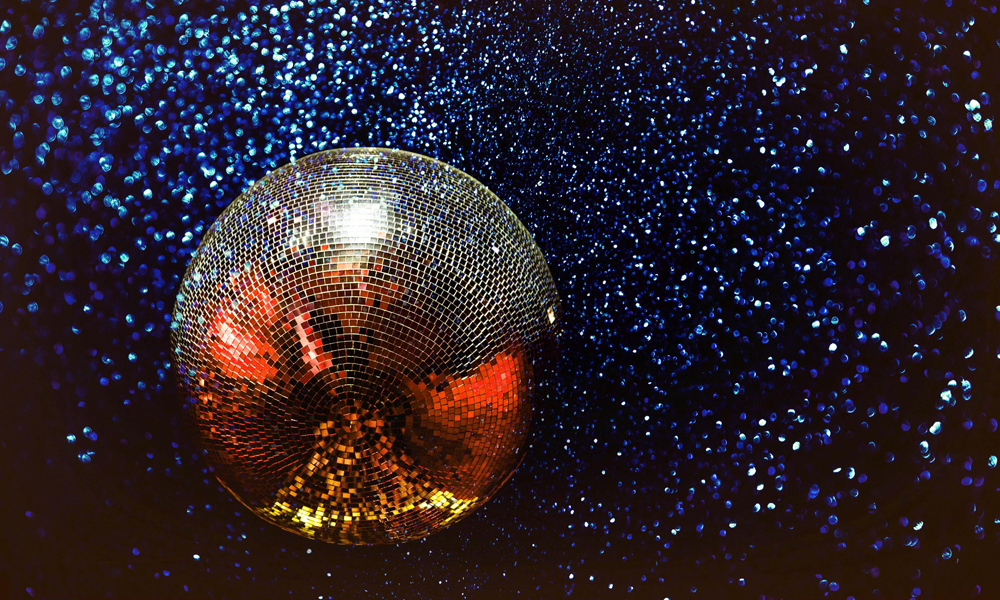

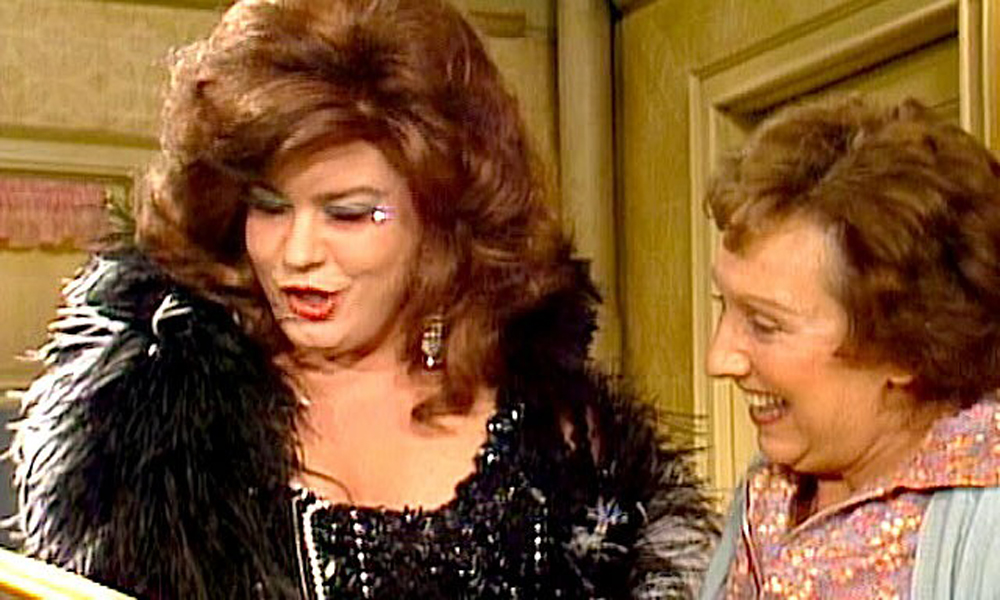
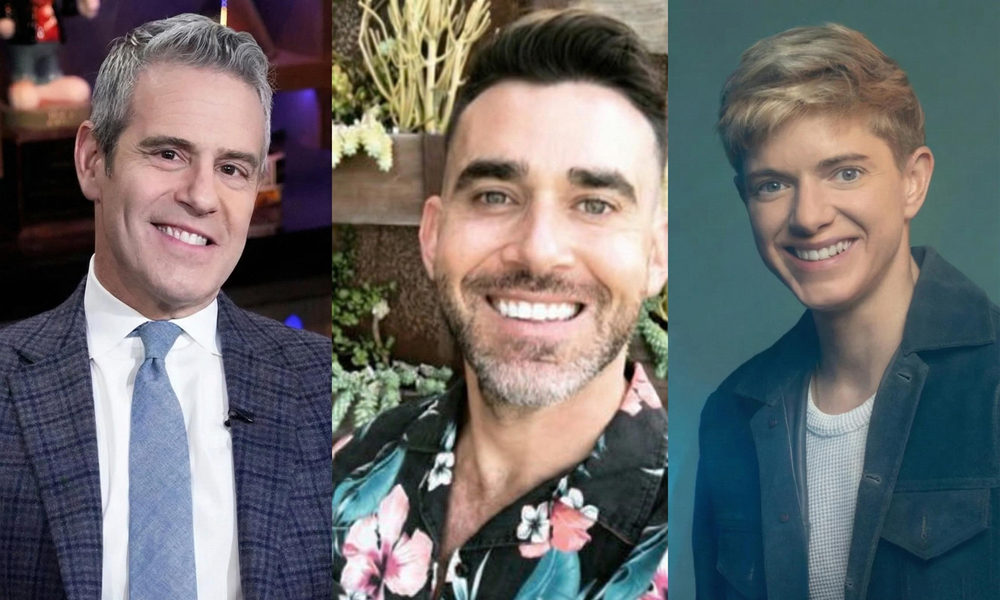
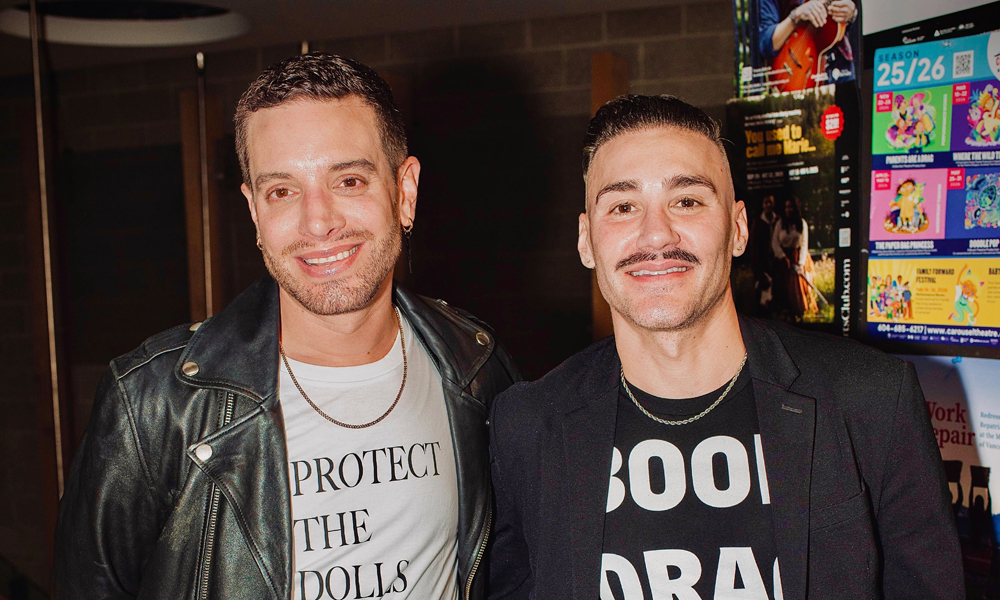
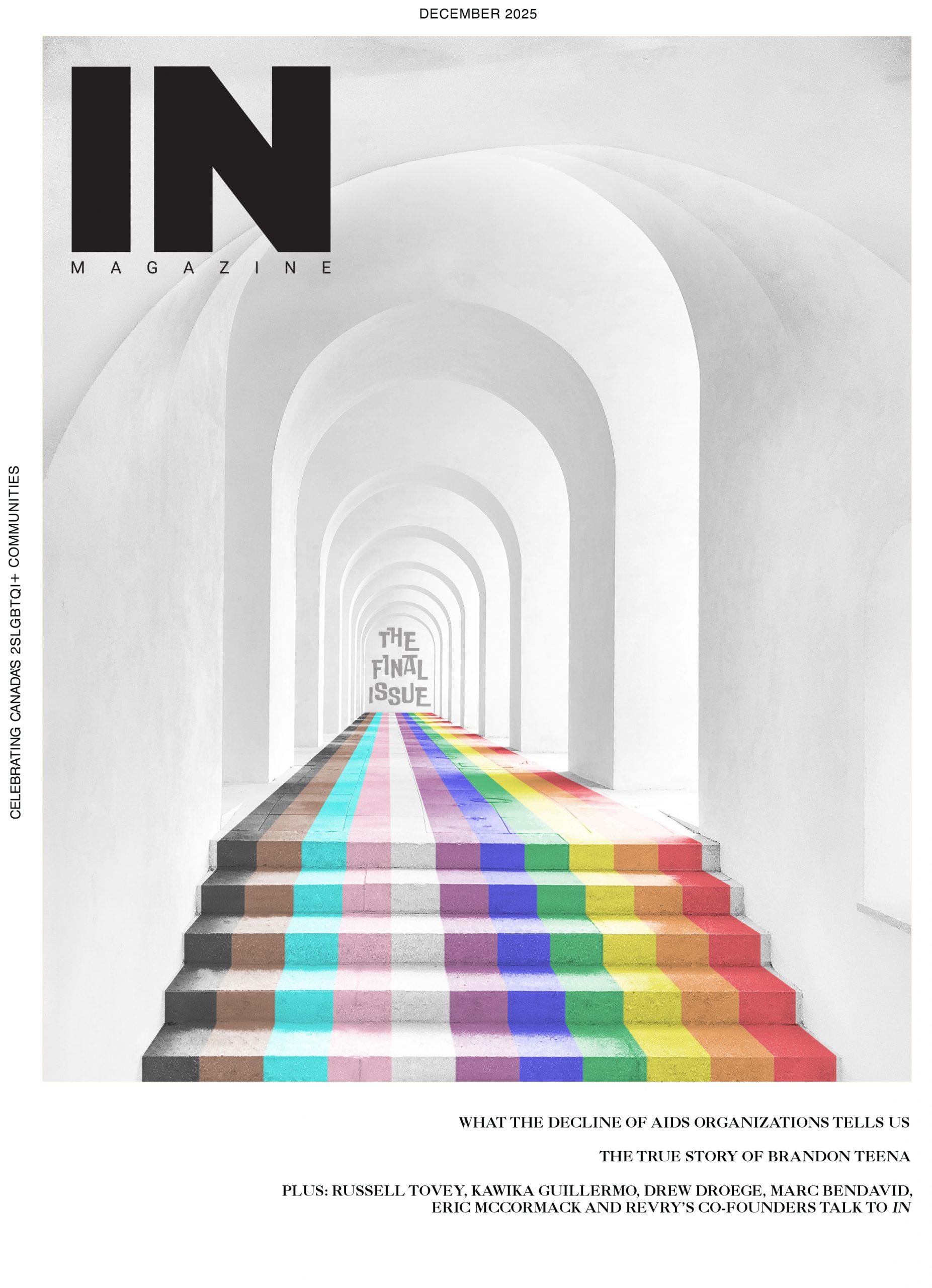
POST A COMMENT